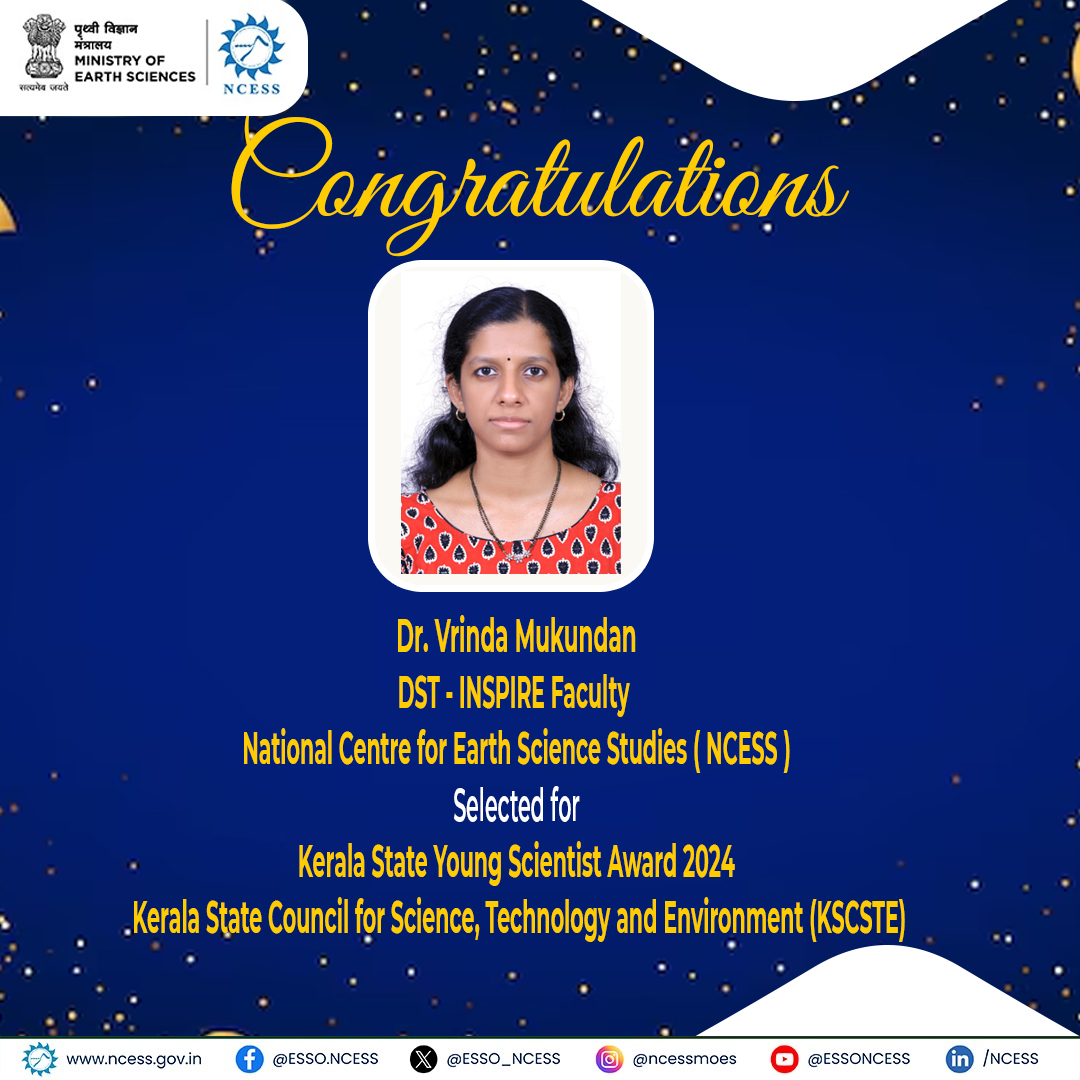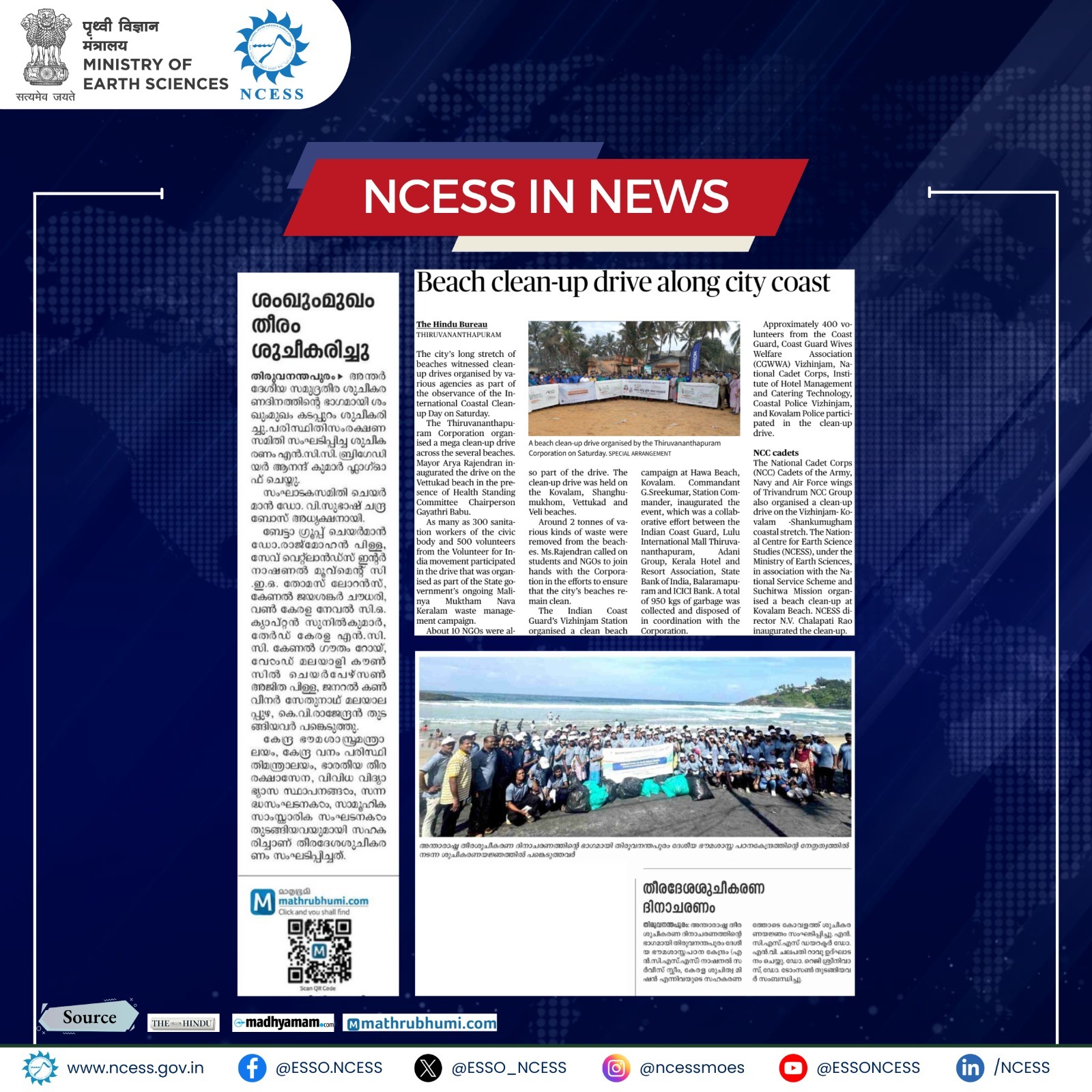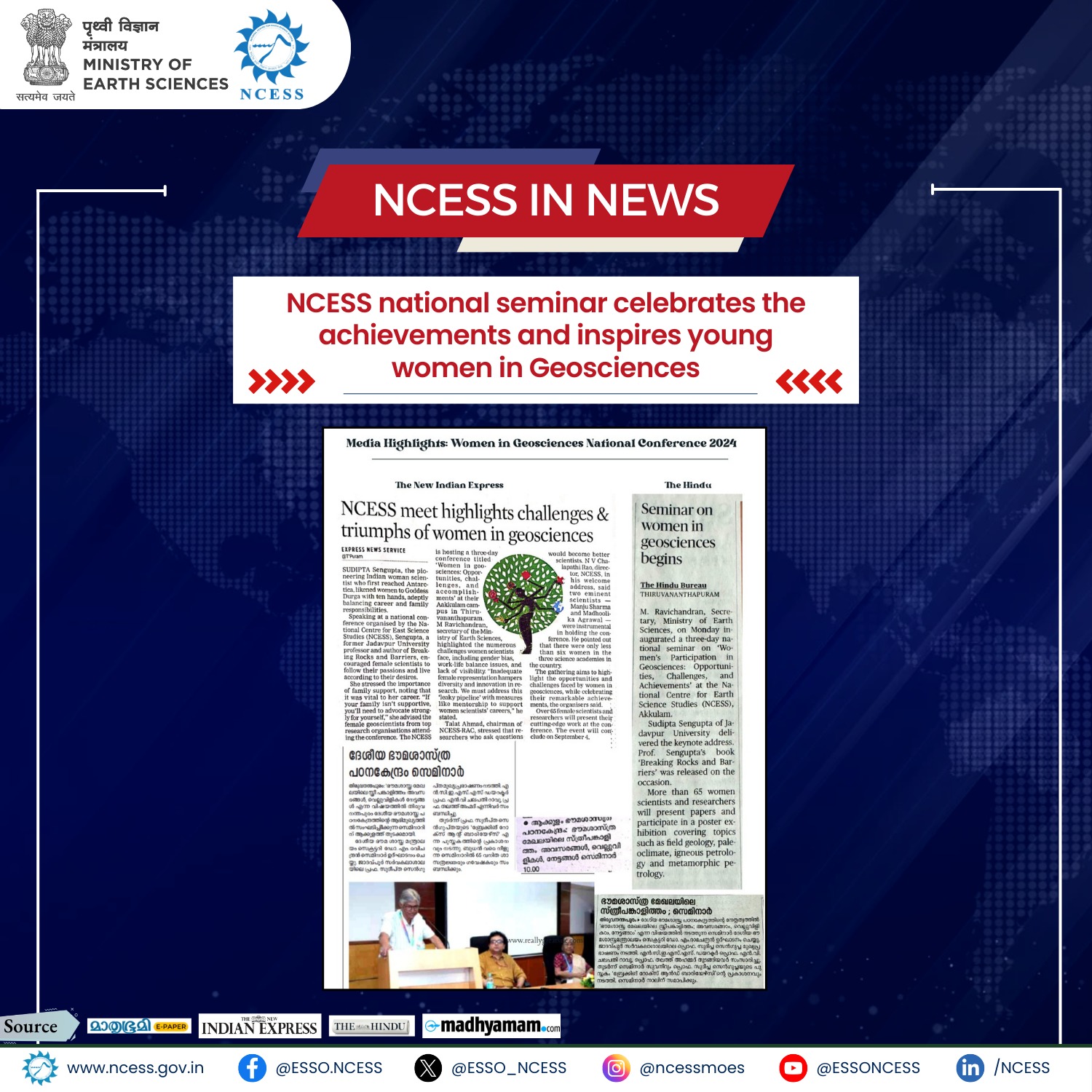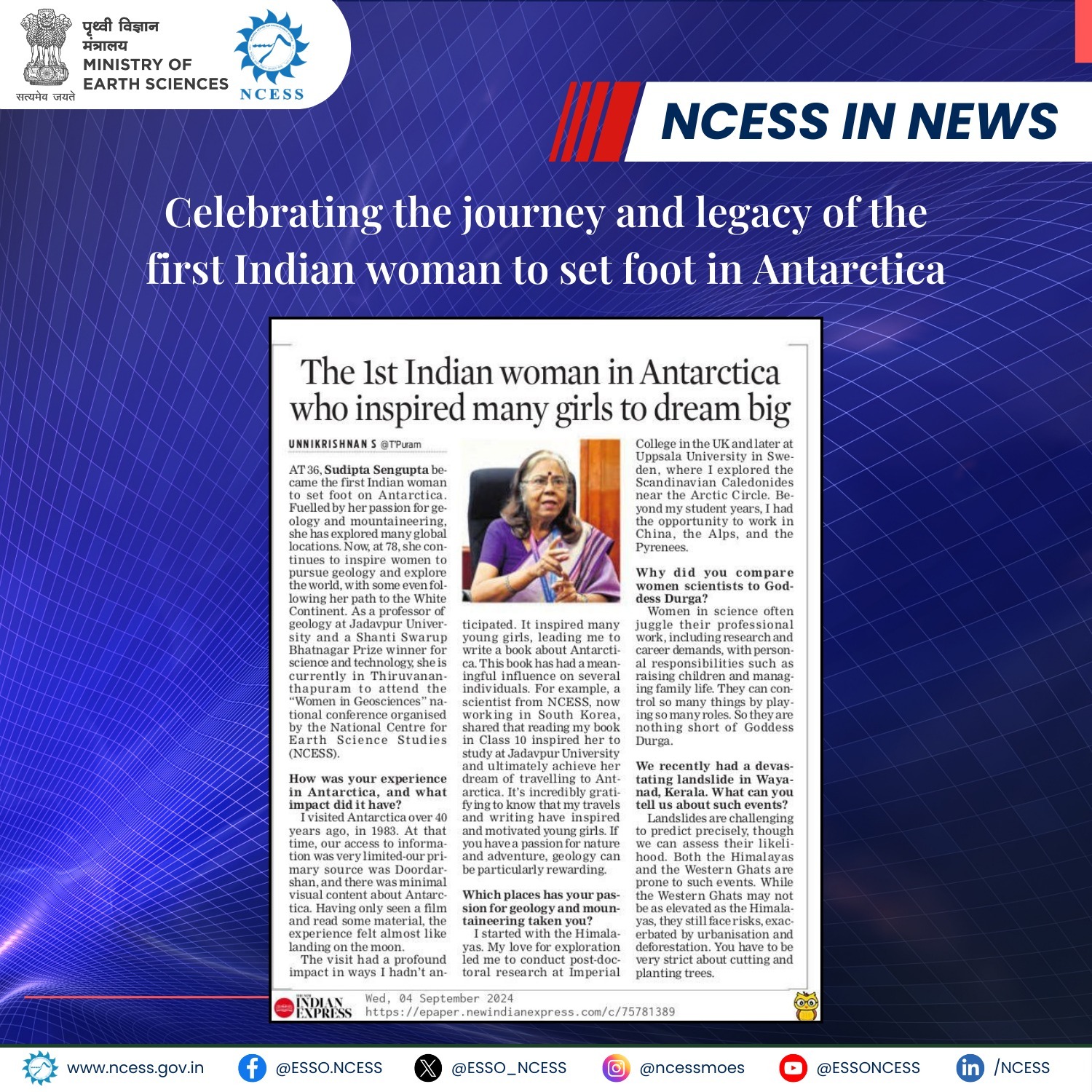Uncategorised
What are the benefits of Earth Science Research?
Earth Science concerns with the research of processes which bring about changes in our continents, oceans and the atmosphere. Earth Scientists through research and understanding contribute to substantial gains in our knowledge on those processes which caused such changes in our continents, oceans and the atmosphere over millions of years. Closely connected are studies to understand and mitigate short term catastrophic activities like, earthquakes, landslides, floods, lightening etc. Earth Scientists are also increasingly concerned with the current and practical aspects of our environment and climate change.
What is the role of NCESS in Earth Science research in India?
NCESS is a unique institute in India carrying out multidisciplinary research encompassing areas of solid earth, coastal dynamics, atmospheric dynamics and natural environment and resources. It has scientists drawn from a wide range of disciplines of science to pursue programmes in an integrated manner.
Can we visit NCESS to know its activities?
NCESS encourages students interested in Earth Science related science to visit any time of the year with prior intimation and appointment. A scientist or scientific Officer will accompany batch of student group visiting NCESS. They will be taken around the campus to several labs and to the displays available at NCESS. Depending on the time available they may be shown films about NCESS contributions and may also be addressed by Scientist(s) to help them know better the advancement in Earth Science activities at Centre and elsewhere. Those desirous of visiting NCESS may write/fill the feedback form or send E-Mail (mail to: techcell[at]ncess[dot]gov[dot]in; cc chiefmanager[at]ncess[dot]gov[dot]in) with details such as: organization name, date and time of your proposed visit, number of persons in a group etc.
What are the opportunities available to students at NCESS?
NCESS provides facilities and working environment for Post-Graduate students, passing their CSIR-UGC National Eligibility Test (NET) exam to join recognised guides of the Institutes to pursue Doctoral Programmes. Such students get stipend from CSIR or University or from Institute funded plan projects.
The candidates who have qualified in any of the above fellowships may approach any of the scientists at NCESS depending on their interests. They can browse the website to find suitable division and supervisor. They can directly contact the supervisor to discuss their plans and interests. The supervisor will suggest the modalities to be followed to enrol himself/herself as Doctoral student of the Institute.
Please also read section on Admission under Notifications
Can we use NCESS laboratory facilities?
Yes, as a student or researcher you are encouraged to use the facilities available at the institute. Permission from the Director, NCESS is required to use the facility. Please contact the concerned lab in charge with an authorisation letter from your Head or Supervisor and discuss with him/her about time and procedures to be followed.
Certain sophisticated laboratory facilities at NCESS are on payment basis. There are different rates for different category of users. Details are available in the laboratory link. You can also download request forms and submit your request to use these facilities.
How to Join NCESS?
Opportunities arising from time to time are advertised in leading news papers as well as in the website for eligible well qualified candidates to apply.
Is it possible to have research collaborations with the Institute?
Scientists, Researchers from universities, departments have the opportunities to collaborate with Institute scientists in research programmes being pursued by the Institute. The Institute promotes both national and international collaborations and provides forums for meaningful multidisciplinary approach with a pool of scientists belonging to several disciplines.
Does NCESS take up consultancy work?
NCESS provides consultancy services in the field of Coastal Zone management, EIA, geoinformatics, slope stability and control of landslides etc. Please check section under Consultancy and write to the Director for details.
How to avail library facility?
All research workers can use library facility with prior approval of Director, NCESS.
Can we interact, exchange views on earth science related activities with NCESS scientists?
Yes, start a discussion thread by clicking on the Discussion forum link located at the top right hand corner of the website. This discussion will be moderated.
Kerala State Young Scientist Award 2024
Congratulations to Dr. Vrinda Mukundan, DST-INSPIRE Faculty, National Centre for Earth Science Studies (NCESS), on her remarkable achievement in being selected for the Kerala State Young Scientist Award 2024, to be conferred by the Kerala State Council for Science, Technology, and Environment (KSCSTE).
International Coastal Cleanup Day 2024
On International Coastal Cleanup Day, National Centre for Earth Science Studies NCESS, under the Ministry of Earth Sciences Government of India, in association with the NSS India & Suchitwa Mission, organized a clean-up drive at Kovalam and Kollam beaches to spread awareness of maintaining clean coastlines for sustainable marinelife.
Clean Beach! Our Pride!
- ശുചിത്വ തീരം നമ്മുടെ അഭിമാനം -.
National Conference on Women in Geosciences: Opportunities, Challenges and Accomplishments (2-4 September 2024)
The three-day "National Conference on Women in Geosciences: Opportunities, Challenges and Accomplishments (2-4 September 2024)" has commenced today at NCESS. The event, presided over by Dr. M. Ravichandran, Hon'ble Secretary, Ministry of Earth Sciences Government of India, is being organized by the National Centre for Earth Science Studies (NCESS).
During the inaugural ceremony, Prof. N.V. Chalapathi Rao, Director, NCESS, extended a cordial welcome, while Prof. Talat Ahmad, Chairman of NCESS-RAC, shared general remarks. Prof. Sudipta Sengupta, Jadavpur University, Kolkata, delivered the keynote address.
The seminar will showcase the work of over 65 women scientists and researchers, presenting papers and participating in a poster exhibition covering diverse topics such as field geology, paleoclimate, igneous petrology, and metamorphic petrology. The primary objective of the seminar is to facilitate discussions on the opportunities, challenges, and accomplishments of women in the sphere of Geosciences.
A new way to tap oil reserve
Drilling for oil could turn out to be a whole new experience using a novel technique developed by scientists here at the National Centre for Earth Science Studies (NCESS). NCESS scientists V. Nandakumar and J.L. Jayanthi have patented a method which, in layman’s terms, could give oil exploration teams valuable knowledge — practically as real-time data — about the quality of oil contained in a basin during the drilling process itself. What they have devised is a method to precisely determine the API gravity of hydrocarbon-bearing fluid inclusions (HCFI) using fluid inclusion techniques and microscope-based fluorescence emission spectroscopy.
Information droplets
The American Petroleum Institute (API) gravity denotes the commercial value of crude oil. HCFIs are minute ‘droplets’ of petroleum oil trapped inside isolated, microscopic rock chambers. The important point is that their composition may have remained unchanged since the time of the ‘entrapment’. For oil explorers, HCFIs hold priceless information about oil reservoirs deep inside the earth.
The Government of India granted the patent to Dr. Nandakumar, Scientist (G) and head, Crustal Processes Group, NCESS; and Dr. Jayanthi, who is Project Scientist (C), NCESS; on July 3. The Oil and Natural Gas Corporation (ONGC) has evinced interest in adopting their technique, which, the scientists say, holds vast potential for application in the petroleum industry. “In general, 40% of exploratory wells end up as dry wells. Our methodology that employs a non-destructive, micro-spectroscopic technique could give fresh impetus to further exploration in locations adjoining abandoned or dry wells,” Dr. Nandakumar said. The ONGC had supplied rock samples from the Mumbai offshore basin for the research. The research, which took six years to bear fruit, was undertaken with funding from the Ministry of Earth Sciences.
Source : THE HINDU, Thiruvananthapuram Edition, July 14, 2019 22:59 IST
Will be Updated Soon..
Opportunities for Students
NCESS provides various opportunities for school as well as college students to familiarise and/or pursue research on different branches of earth sciences. In order to provide a glimpse on the world of earth science disciplines, an open day is observed for school students during April every year coinciding with the Earth Day celebrations. On this day laboratories in the institute are open for half a day for students to visit and interact with scientists.
Further, the Centre offers Internship/Summer training and Dissertation programs to selected candidates as part of their curriculum, while pursuing University level education. Notification in this regard will appear on website every year. NCESS is a recognised R&D institution of various universities for carrying out doctoral programs. Research scholars can register for Ph.D under science, environmental and inter-disciplinary topics as and when announcements are made by the universities. Eminent scientists from national as well as international institutions visit NCESS regularly for scientific exchange programs. The Earth Science Forum in the institute is a platform for information exchange on activities of on-going research projects and all college students available in the campus are allowed to participate in such presentations.
Internship/Training/Dissertation at ESSO-NCESS
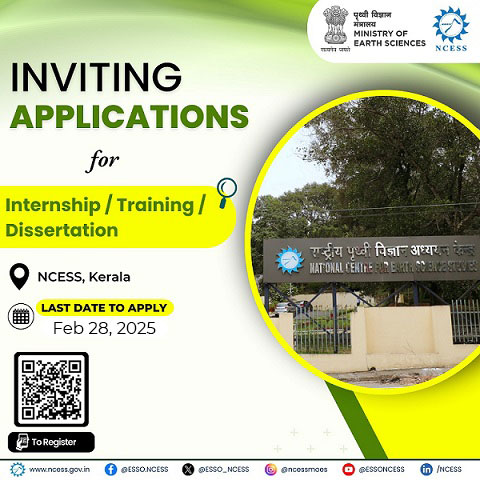 Applications for internships/training/dissertation for students can be submitted during February and September every year. Candidates, who are interested to work at NCESS must apply in the attached format (click here). Selected candidates must bring printout of their application forms, after duly signed by the HOD of respective department with official seal, at the time of arrival for training in ESSO-NCESS.
Applications for internships/training/dissertation for students can be submitted during February and September every year. Candidates, who are interested to work at NCESS must apply in the attached format (click here). Selected candidates must bring printout of their application forms, after duly signed by the HOD of respective department with official seal, at the time of arrival for training in ESSO-NCESS.
Eligibility
Applications of only the following students will be considered for scrutiny and final acceptance.
a) 5 years Integrated M.Sc./M.Sc. Tech./M. Tech.: Students from 7th - 9th Semester;
b) 3 years M.Sc./M.Sc. Tech.: Students from 3rd – 5th Semester;
c) 2 years MSc. /M.Sc. Tech. / M. Tech.: Students from 2nd – 3rd Semester;
d) B.Sc Final year students;
General Guidelines
The online form for submission of applications will only be active from 01 February to 28 February and from 01 September to 30 September of every year. Late applications will not be entertained.
No personal email communications will be sent to the shortlisted candidates. Shortlisted candidates list approved by Director NCESS will be announced on the website in the first week of May and in the first week of December, respectively. The list will also mention the allocated name of the supervisor/Group at NCESS and the title of their Internship/training/Internship.
Based on the applications and the applicant's research interests, a suitable supervisor will be allotted by the visiting student’s committee. Neither the supervisors nor the Internship/Training/Dissertation students are allowed to select a student/supervisor of their choice.
The visiting students need to accept the Internship/Training/Dissertation offer within 7-10 working days. If no reply is received, the offer will be transferred to the other applicants depending on the waiting list.
The candidates, who were selected for training earlier but did not join, need not apply again. Students must undergo at least 8 weeks of training continuously in NCESS, otherwise their candidature will not be considered.
During the Internship/Training/Dissertation period only day field trips (no stay) will be allowed for Visiting Students. A prior approval from the Visiting Students Committee and the Director, NCESS is mandatory for any such field work.
Visiting Students will only be allowed in NCESS campus on working days. In exceptional conditions visiting students will only be allowed on weekend and holidays for which prior approval from the Supervisor and Group Head is mandatory.
Once the students complete their Internship/Training/Dissertation, they need to inform the visiting student committee and the committee will arrange their presentation in online/offline mode. It is compulsory for every trainee and dissertation student to deliver a 15 minute (10-minute presentation + 5-minutes for discussion) talk at the end of their training/dissertation period.
Post presentation, the Internship/Training/Dissertation students can get their report/ Dissertation signed by the supervisor and submit it to the visiting students' committee for issuing the certificate. The submitted report/Dissertation must be submitted to the NCESS library for future reference.
Others:
Any Publication/Communication to any Journal that results from the work shall have consent of the Guide and NCESS. No accommodation and Transport shall be provided to the project students. There is no fee for carrying out project works at NCESS. NCESS reserves the right of not considering any or all requests and close/discontinue the Programme without assigning any reasons.
For enquiry, please contact: Email: visitingstudents[at]ncess[dot]gov[dot]in or techcell[at]ncess[dot]gov[dot]in
View List of Students Selected for Dissertation / Internship Program during May - August 2024
List of Awards achieved by NCES
Certificate of Merit for 2014 by Ministry of Earth Sciences
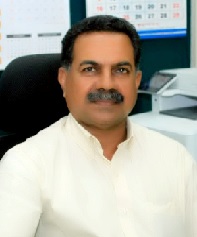
Dr. D. Padmalal, Scientist-EII, NCESS was awarded Certificate of Merit for his outstanding contributions in the field of Quaternary Geology and Environmental Geology during the MoES Foundation Day celebrations held at New Delhi on July 27, 2014.
Certificate of Best Employee for 2014 by Ministry of Earth Sciences
Group “B” (Gazetted & Non-Gazetted) Employees
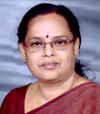
Ms. K. Viswabharathi
Assistant Manager
NCESS
Group “C” Employees
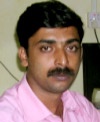
Shri Eldhose K
Technician-Grade-B
NCESS
Multi Tasking Staff
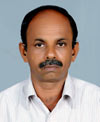
Shri P. Saseendran Nair
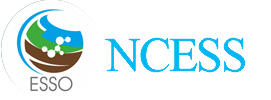

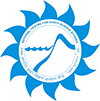

 RTI Act
RTI Act

